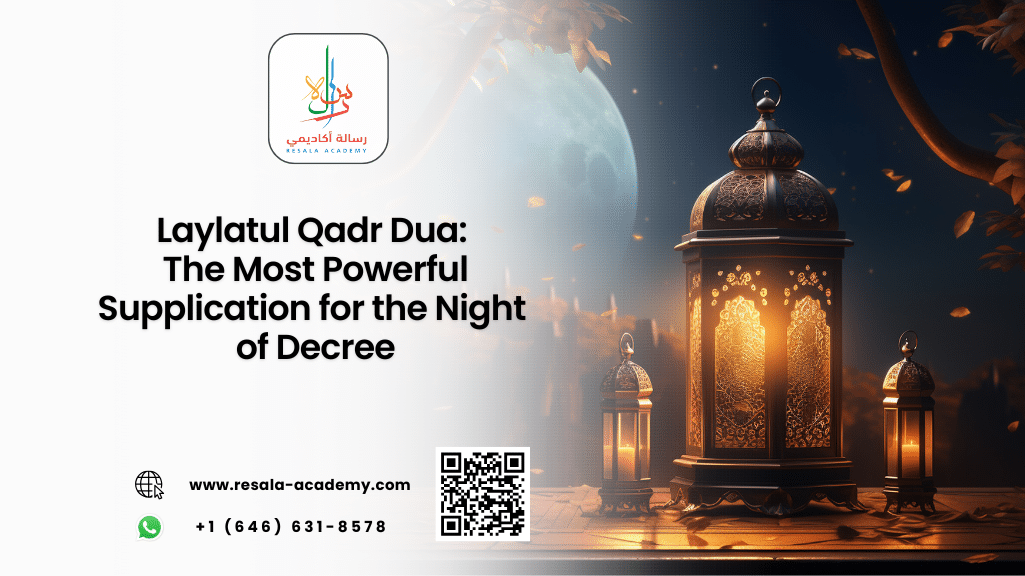Table of Contents
How to Say and Write “Father in Arabic”: A Complete Beginner’s Guide
Learning a new language opens the door to understanding a rich culture, and Arabic is no exception. One of the first words many learners are curious about is how to say and write “Father in Arabic.”
This simple yet deeply meaningful word is a gateway into Arabic vocabulary, pronunciation, and script. In this comprehensive guide, we’ll explore everything you need to know about the word father in Arabic, including its pronunciation, variations, cultural significance, and how to use it in context.
Whether you’re a traveler, a language enthusiast, or someone with Arabic-speaking family members, this guide will help you confidently use the word “father” in Arabic and deepen your understanding of the language. Plus, we’ll introduce you to Resala Academy, a top-tier online platform for learning Arabic, especially tailored for non-native speakers.
What Is the Word for “Father in Arabic”?
The standard Arabic word for “father” is:
أب (ʾAb)
- Arabic Script: أب
- Transliteration: ʾAb
- Pronunciation: /ʔab/
- English Meaning: Father
This word is used in both Modern Standard Arabic (MSA) and Classical Arabic. It is a short, two-letter word but carries deep emotional and cultural weight.
Example in a Sentence:
- Arabic: أبي يحب القراءة.
- Transliteration: Abī yuḥibbu al-qirāʾah.
- English: My father loves reading.
Read more about: Mastering Politeness: How Are You Arabic Language Expressions in Formal vs. Informal Contexts
Understanding the Root and Morphology
Arabic is a root-based language. The word أب comes from the root أ-ب, which is associated with parenthood and origin. This root appears in various forms and derivatives, such as:
- أبوي (Abawī): Paternal
- أبو (Abū): A form used in names, meaning “father of” (e.g., Abū Bakr)
- أبوة (Abūwah): Fatherhood
Understanding these variations helps learners grasp the structure of Arabic and expand their vocabulary organically.
Pronunciation Tips for Non-Native Speakers
Pronouncing Arabic words correctly can be challenging for beginners. Here are some tips for saying أب (ʾAb) correctly:
- The ʾ (hamza) is a glottal stop, similar to the sound in the middle of “uh-oh.”
- The b is pronounced as in English.
- Keep the vowel a short and crisp.
Pro Tip: Practice saying the word slowly, then gradually increase your speed. Use audio resources from Resala Academy’s Arabic courses to perfect your pronunciation.
Variations of Father in Arabic Dialects
Arabic is spoken across more than 20 countries, and each region has its own dialect. While أب (ʾAb) is universally understood, different dialects use alternative terms for “father.”
Common Dialectal Variants:
| Dialect | Word | Transliteration | Notes |
|---|---|---|---|
| Egyptian | بابا | Bābā | Informal, affectionate |
| Levantine | بابا | Bābā | Common in Syria, Lebanon, Jordan |
| Gulf | يبه | Yuba | Used in Kuwait, Bahrain |
| Maghrebi | بابا | Bābā | Also used in Morocco, Algeria |
These terms are often used in casual or intimate settings. For formal writing or speech, أب remains the standard.
How to Write Father in Arabic Script
Arabic is written from right to left, and each letter changes shape depending on its position in the word. The word أب consists of:
- أ (Alif with Hamza): A glottal stop
- ب (Bā’): The letter “B”
Writing Practice:
Try writing the word أب several times. Use lined paper or Arabic writing worksheets from Resala Academy’s learning materials to improve your script.
Cultural Significance of Father in Arabic-Speaking Societies
In Arabic culture, the role of the father is deeply respected. The father is traditionally seen as the provider, protector, and moral guide of the family. This respect is reflected in language and expressions.
Common Arabic Proverbs Involving “Father”:
رضا الأب من رضا الرب
Riḍā al-ab min riḍā al-rabb
“A father’s approval is God’s approval.”من شابه أباه فما ظلم
Man shābaḥa abāhu fa-mā ẓalam
“He who resembles his father has not wronged.”
These sayings highlight the cultural reverence for paternal figures in Arab societies.
Learning Father in Arabic Through Context
To truly master a new word, you must see it in action. Here are some real-life scenarios where you might use the word “father” in Arabic:
1. Introducing Your Father:
- Arabic: هذا أبي.
- Transliteration: Hādhā Abī.
- English: This is my father.
2. Talking About Family:
- Arabic: والدي يعمل طبيبًا.
- Transliteration: Wālidī yaʿmal ṭabīban.
- English: My father works as a doctor.
3. Asking About Someone’s Father:
- Arabic: ماذا يعمل والدك؟
- Transliteration: Mādhā yaʿmal wāliduk?
- English: What does your father do?
These examples are part of the practical dialogues taught at Resala Academy, making it easier for learners to apply vocabulary in real-life conversations.
Linguistic Nuances of “Father in Arabic” Across Classical Texts and Islamic Terminology
Understanding the term “Father in Arabic” through classical literature and religious texts offers deeper linguistic and cultural insights. Arabic, being the language of the Qur’an and Islamic scholarship, uses familial terms with layered meanings and spiritual connotations. Here’s how the word is uniquely represented in these contexts:
- In Qur’anic Arabic, the term “Ab” (أب) appears in various forms, often symbolizing not just biological parenthood but also spiritual or ancestral lineage. For example, Prophet Ibrahim (Abraham) is referred to as “Abīkum” (your father) in the Qur’an, emphasizing his role as a patriarch of monotheism.
- The term “Abu” (أبو) is frequently used in Islamic names and titles, such as Abu Hurairah or Abu Bakr, denoting respect and lineage. This form translates to “father of” and is part of the Arabic naming convention known as Kunya.
- In Hadith literature, the word “Ab” is used to convey moral responsibility and paternal guidance, highlighting the father’s role in nurturing faith and character.
- Classical Arabic poetry often uses “Ab” metaphorically to represent leadership, wisdom, or origin, enriching the semantic field of the word far beyond its literal meaning.
These nuanced uses make the word “Father in Arabic” a vital term for students delving into Arabic linguistics, theology, and literature—areas thoroughly explored in the advanced curriculum of Resala Academy.
Strategic Use of “Father in Arabic” in Arabic Language Proficiency Exams and Certifications
For learners preparing for Arabic proficiency tests such as ALPT (Arabic Language Proficiency Test) or university-level Arabic studies, mastering terms like “Father in Arabic” is essential. These exams often assess vocabulary in familial, cultural, and religious contexts, making this term highly relevant.
- Vocabulary sections frequently include kinship terms such as “Ab” (أب), “Wālid” (والد), and “Abū” (أبو), requiring learners to distinguish between formal, informal, and contextual usage.
- Reading comprehension passages may feature narratives involving family dynamics, where accurate understanding of terms like “father”, “parent”, and “guardian” is crucial for scoring well.
- Writing tasks often prompt students to describe family members or write about cultural values, where using the correct form of “Father in Arabic” demonstrates both linguistic accuracy and cultural awareness.
- Listening sections might include dialogues or monologues using dialectal variants like “Baba” or “Yuba”, testing the learner’s ability to recognize regional differences.
By focusing on these practical applications, students can not only enhance their exam performance but also deepen their real-world communication skills—skills that are effectively nurtured through structured training at Resala Academy.
Related Vocabulary to Expand Your Learning
Learning related words helps reinforce your understanding. Here are some terms connected to “father” in Arabic:
- Mother: أم (ʾUmm)
- Parents: والدان (Wālidān)
- Son: ابن (Ibn)
- Daughter: ابنة (Ibnah)
- Family: عائلة (ʿĀʾilah)
Each of these words is frequently used in daily Arabic and is part of the beginner curriculum at Resala Academy.
Your Gateway to Arabic Mastery: Learn with Resala Academy
If you’re serious about learning Arabic, Resala Academy is your ideal partner. As a leading online Arabic learning platform, it offers:
📘 Structured courses for all levels
🧑🏫 Native-speaking instructors
🎧 Interactive audio-visual materials
📅 Flexible scheduling for global learners
🏆 Certification upon course completion
Whether you’re learning for travel, business, or personal growth, Resala Academy helps you build a solid foundation in Arabic, starting with essential words like “father.”
Join thousands of learners worldwide and start your Arabic journey with Resala Academy.
Frequently Asked Questions (FAQs)
1. What is the difference between “Ab” and “Baba” in Arabic?
- Answer: “Ab” (أب) is the formal word for “father” in Arabic, used in writing and formal speech. “Baba” (بابا) is an affectionate, informal term used in everyday conversation, especially by children.
2. How do I pronounce Father in Arabic correctly?
- Answer: The word “Ab” is pronounced with a glottal stop at the beginning, followed by a short “a” and a “b” sound. Practice with native speakers or use pronunciation tools from Resala Academy’s courses.
3. Is “Ab” used in all Arabic-speaking countries?
- Answer: Yes, “Ab” is universally understood across the Arab world. However, dialectal variations like “Baba” or “Yuba” are more common in informal settings.
4. Can I use “Ab” in names?
- Answer: Yes, “Abu” (أبو) is a form of “Ab” used in names, meaning “father of.” For example, “Abu Ahmed” means “father of Ahmed.”
5. Where can I learn more Arabic family vocabulary?
- Answer: Resala Academy offers comprehensive lessons on family terms, including interactive exercises and real-life dialogues.
Summary
Learning how to say and write “Father in Arabic” is more than memorizing a word—it’s about connecting with a culture, understanding family values, and building a strong foundation in the Arabic language. From the formal أب to the affectionate بابا, each variation tells a story of love, respect, and tradition.
By learning with Resala Academy, you gain access to expert instruction, cultural insights, and a supportive learning environment tailored to non-native speakers. Whether you’re just starting or looking to deepen your skills, Resala Academy is your trusted guide on the path to Arabic fluency.
Ready to Learn Arabic the Right Way?
Don’t just memorize words—master the language with Resala Academy. Enroll in their beginner-friendly Arabic courses today and discover how fun and rewarding learning Arabic can be.
Start with “father,” and soon you’ll be speaking like a native! Let your journey into the Arabic language begin with a word that means so much—أب. And let Resala Academy be your companion every step of the way.




